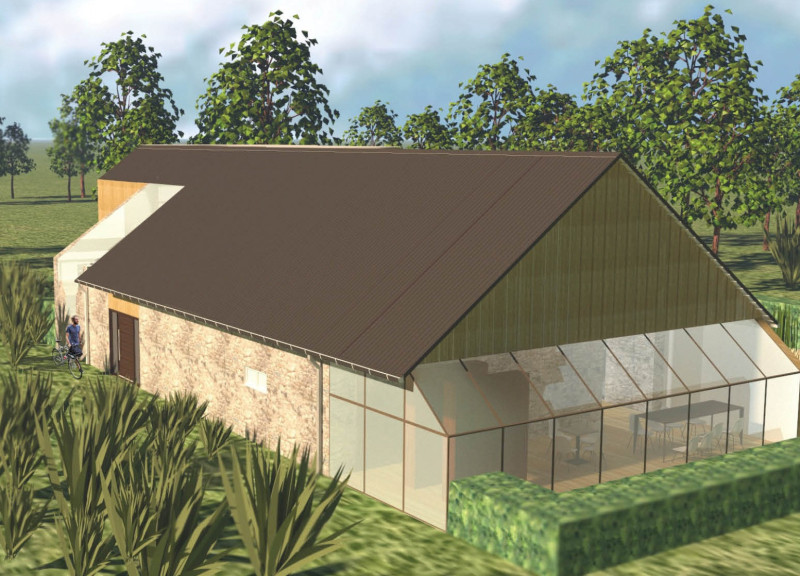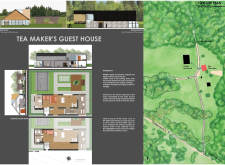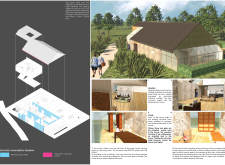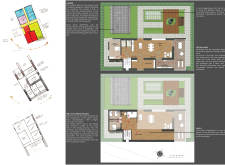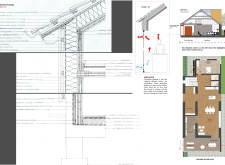5 key facts about this project
The Tea Maker's Guest House is designed to harmonize with its rural surroundings near Lake Bezdibene and the Ozolini Household. It serves two main functions: providing accommodation for visitors and supporting tea production. The overall design focuses on accessibility and interaction, creating a welcoming atmosphere for guests while meeting the operational needs of the tea-making process.
Architecture Concept
The guest house features a clear distinction between public and private areas. The ground floor includes communal spaces such as the kitchen and tea-making workshop, allowing for interaction among guests and staff. The upper level offers private rooms, ensuring that visitors have a quiet retreat. This arrangement promotes a natural flow through the building, making it easy to navigate.
Configuration of Service Spaces
Service areas, including bathrooms and the kitchen, are located close to each other and near the boiler room. This configuration enhances efficiency by reducing the energy needed for water transfer. By grouping these essential spaces, the design supports the daily operations of both hospitality and tea production, highlighting the practical considerations that inform the layout.
Preserving Contextual Heritage
The guest house incorporates existing stone walls, which play an important role in maintaining the site’s historical character. This choice preserves the integrity of the location while adding a rustic feel to the building. The design reflects traditional forms while adapting them to modern functions, creating a strong connection to the surrounding landscape and its cultural history.
Natural Light and Ventilation
Natural light is an essential feature in the design. The extensive use of glazing in the workshop and drying areas allows ample sunlight to enter the interior. This not only supports the tea production process but also enhances the overall atmosphere for guests. Operable glazing provides ventilation, allowing fresh air to flow freely and improving the indoor environment.
Attention to these design details helps create a functional and inviting space at the Tea Maker's Guest House. The combination of careful planning and thoughtful integration with the landscape contributes to a pleasant experience for visitors.


